Indie hard mode: The couples making games together
We spoke to the creators of Cultist Simulator, Regency Solitaire, Overland and more about the challenges of collaborating with your partner.
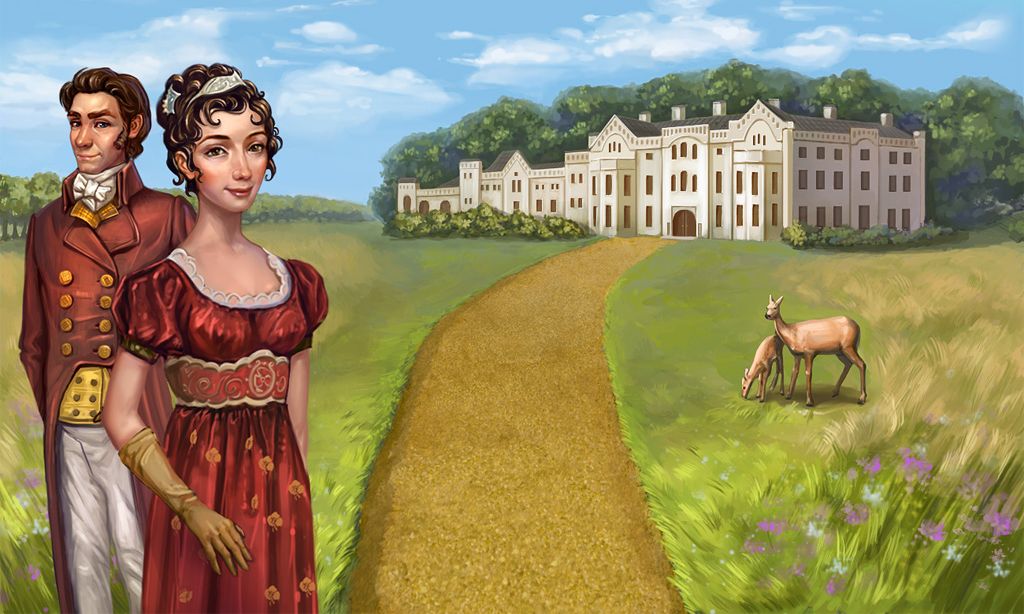
I've always been fascinated by the idea of one- or two-person indie game development teams. Dedicated people tackling all the tasks necessary to create and release a game is inspiring. That mythical status has an unfortunate side effect: we (including myself) have a habit of glamorizing self-sacrifice and overwork. We laud the mental and emotional imbalance that's created when small teams combine their hobby and artistic passion and turn it all into a job. For small teams, social and professional life can become one and the same with no place to turn for a break.
Even more daunting is that idea of two-person teams made up not of friends or acquaintances but spouses and life partners. This special class of development team combines not only their hobby, social life, and profession, but their romantic life too. I spoke with six couples who have successfully developed a game together about how they kept their project from dominating their life or eclipsing their relationship. They all highlighted communication as key, as any successful couple or business partners will, but exactly how they go about communicating was different for each.
Here's what they had to say.
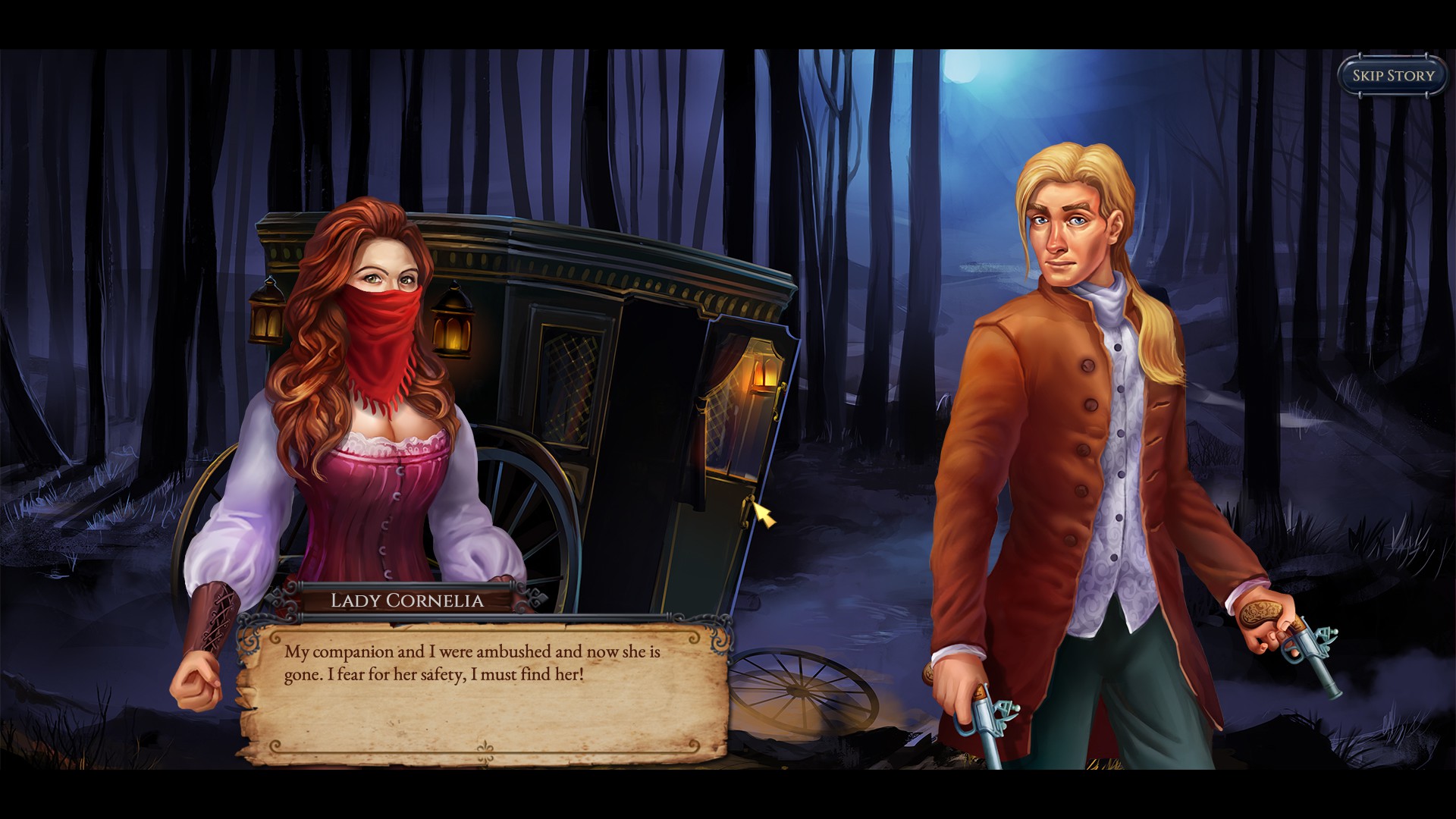
Helen Carmichael and Jake Birkett: Regency Solitaire, Shadowhand
Helen and Jake have been married for 20 years. They worked from home out of separate rooms doing different jobs for several of those years, only transitioning to developing Regency Solitaire and Shadowhand together when Helen had an off-the-cuff idea for a historical fiction solitaire game. Their prior experience working from home separately gave them the confidence they could make the process work, and they make it seem effortless, continually deferring to one another in conversation and speaking of each other supportively.
...having kids is indie hard mode.
Jake Birkett
"We've had a fairly good work-life balance," Jake says. "I haven't had this problem where I haven't been able to stop working. It's almost the opposite, sometimes. We did go out for a lot of trips, ostensibly research for a lot of our games, but also just to have a nice time really. I think other indies might view us as a bit lazy in that sense. I don't mind. It's all about quality of life, really. It's a bit like having a jogging partner, you're more likely to go out if you're meeting your jogging partner at the same time every day."
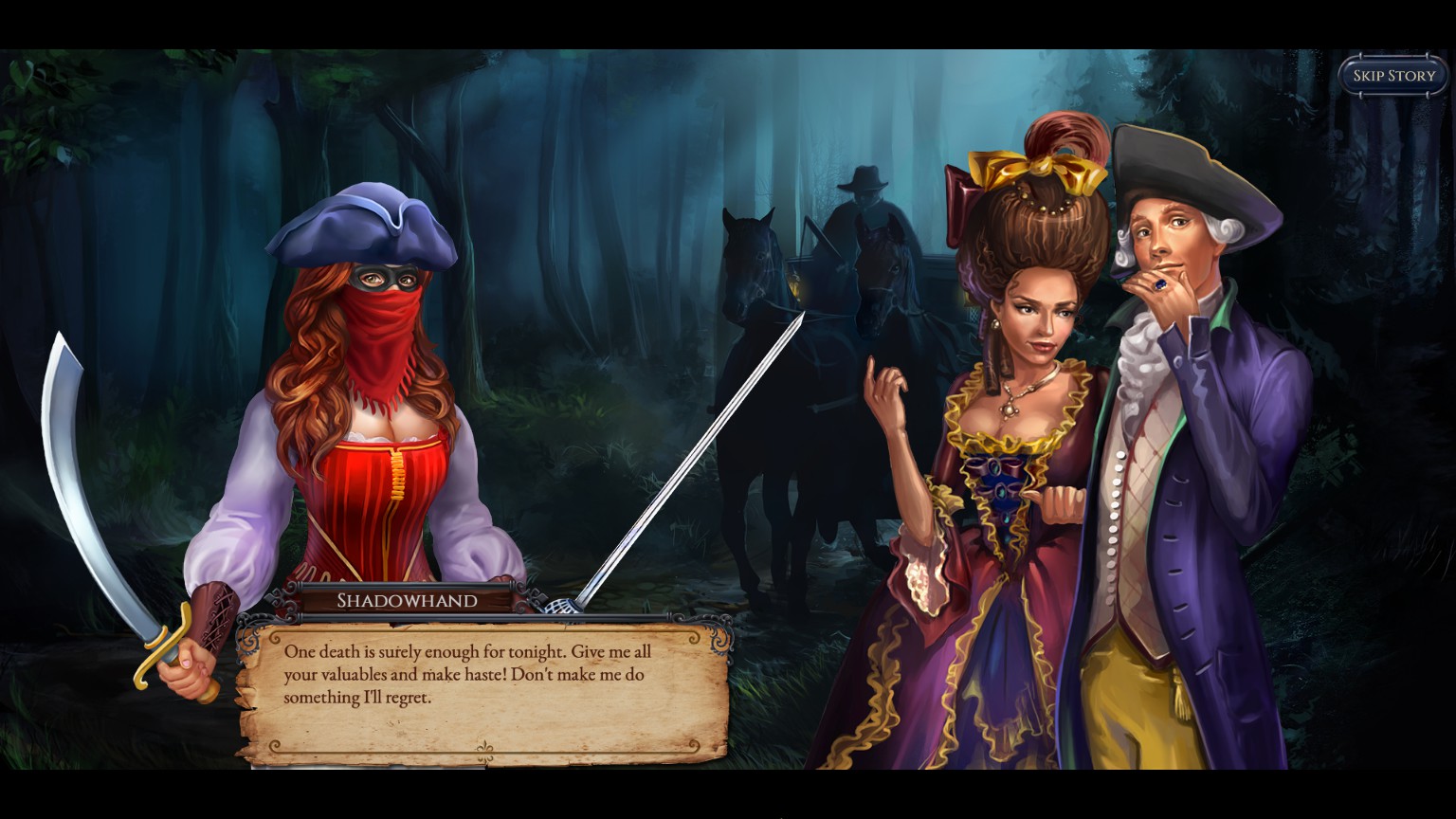
Although their children are older now, having young kids during their early days of development sounds a bit hectic.
HELEN CARMICHAEL: When we were doing Regency Solitaire—four years ago we started on that and our kids were a lot younger—I would do my work between 9am and 3pm. Then I would stop and I would be available for the kids to do whatever they needed to do. Whereas Jake would tend to start a bit later in the day and continue on working into the evening.
The biggest gaming news, reviews and hardware deals
Keep up to date with the most important stories and the best deals, as picked by the PC Gamer team.
JAKE BIRKETT: It was always stressful if we were having meetings sort of near dinner time because the kids would come home and make a fuss and we'd be right in the middle of some really complex design thing and they'd all come home making noise or whatever and want our attention. I've said before that having kids is indie hard mode.
Rebekah and Adam Saltsman: Overland, Finji Co
Rebekah (Bekah) and Adam Saltsman have been together since 1998, married since 2006, and started their company Finji Co the same year. The creators of Overland, they went on to publish other indie games like Night in the Woods and Tunic. They work out of a home office from which they post Overland gifs to their official Twitter account and amusing interactions with their two boys to their personal accounts. It seems like a dream, but when asked if they're doing what they've always imagined, it turns out that's not the case.
..we have made this mistake before where you just go, 'Well we're basically on the same wavelength so we don’t actually have to talk about our major goals and aspirations
Adam Saltsman
REBEKAH SALTSMAN: Somebody actually just asked me this at PAX, well no, it was just a throw-off comment. It's actually been sticking with me now for like two weeks. 'It's always been yours and Adam's dream to make games.' And in my brain I was like 'No?' This has actually never been a dream of mine—to make games.
ADAM SALTSMAN: Even my goal for most of my life was to be a cog in a machine that eventually produced a game. That was the biggest vision that I had. I would go 'Maybe I could be a level designer or something. That would be incredible!'
RS: The idea that my dream was to run a company with my husband—like, no! It's actually not, that's just the reality of what fell out of both independently and together following the things we perceived as our dream. Mine is I eventually wanted to be a mom and I wanted to work and I wanted to work with brilliant people. That's where I come at into the game industry. Whereas Adam has just forever needed to make games. The idea that I can help him accomplish that, which is one of the main tenets of who he is as a person, like hell yeah I'm all in!
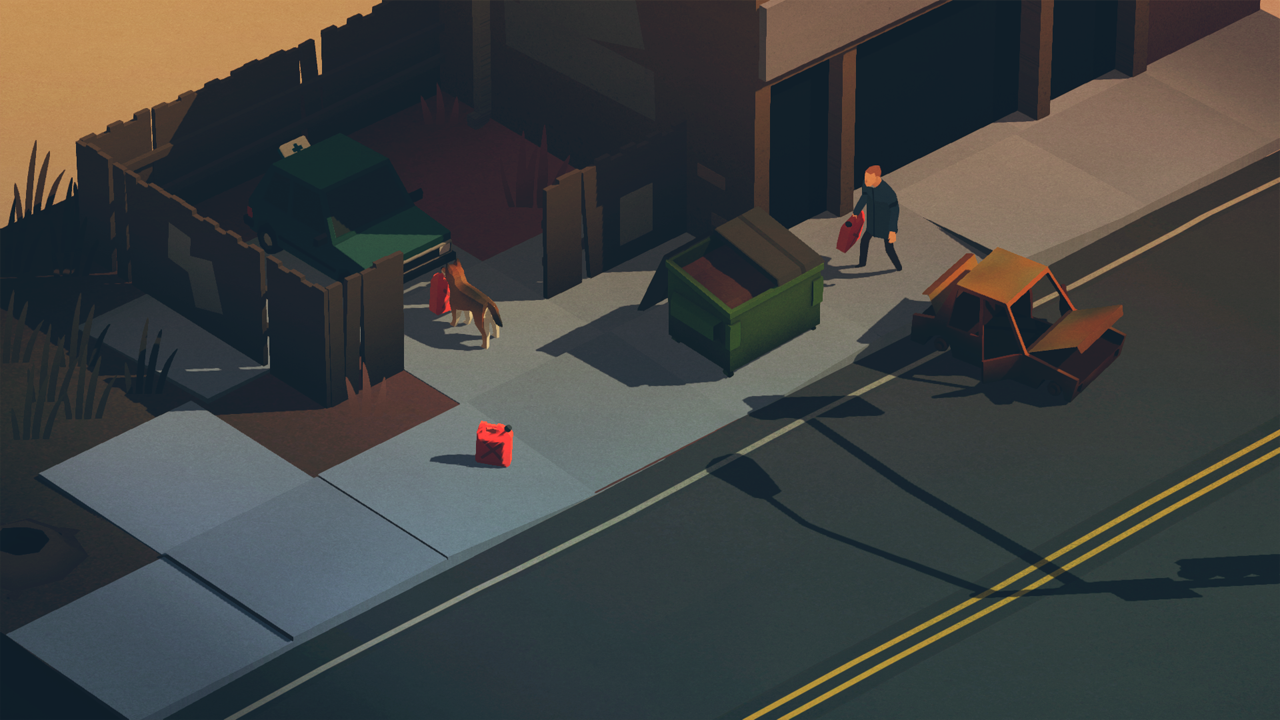
Despite the chaos, Bekah and Adam seem like a well-oiled machine, even in casual conversation. It's a confidence in one another they've earned over 20 years by continually re-assessing their own wants and needs from the projects they tackle together.
"It sounds so obvious but we have made this mistake before where you just go, 'Well we're basically on the same wavelength so we don’t actually have to talk about our major goals and aspirations and things we want out of the company,'" Adam says. They both stress the importance of these "boringly explicit" conversations that they have with each other about the future of Finji and their personal aspirations. "The idea that you have that conversation once and then never again is insane. We basically have it every Sunday!" Bekah says.
RS: People are always so scared to have the first conversation. If you have the first conversation before there are any conflicts or feelings hurt, before—
AS: Before there's a ton of money involved. Before there's a ton of responsibility involved. Before you've settled into some kind of weird work habits or personal disputes. It's not going to magically protect you but—
RS: At least if there is a problem you can approach it like real adults and talk it out if you're on the same page.
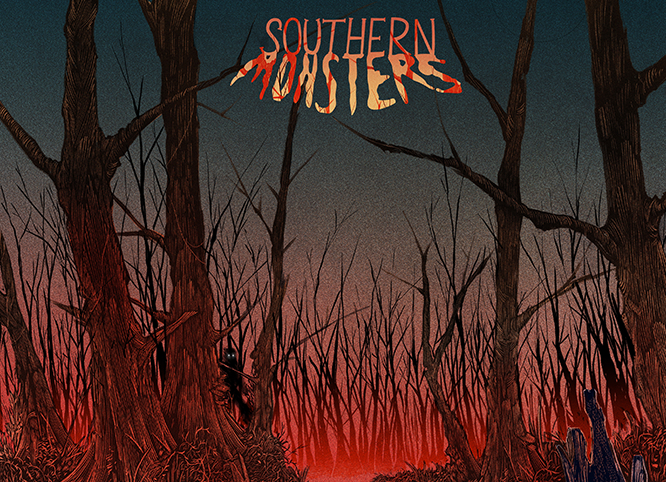
Priscilla and Kevin Snow: Southern Monsters, Mama Possum
Kevin and Priscilla have been together since March of 2014. "Within the first few weeks of us dating we were talking about what we could work on together," Kevin says. They were thrilled to be in a relationship where they could be proud of their partner's creative work and feel as though their successes were shared rather than resented.
When Kevin gives a critique now I'm like, 'OK, there's probably something there’ and if I give Kevin a critique he's like, 'OK, I'll think about it'
Priscilla Snow
They work out of a home office in their apartment cluttered with Priscilla's eclectic collection of instruments (Theremin, acoustic guitar, Rock Band guitar, and Nintendo Labo piano to name only a few) and Kevin's collection of post-it notes chronicling the first draft of Southern Monsters, which he wrote while on hold at his old call center job. They both work on upwards of five games at a time—some together and some separate.
KEVIN SNOW: It's kind of easy to just work side-by-side for 12 hours.
PRISCILLA SNOW: Which we do a lot.
KS: It's super easy to turn into a work Katamari together. We're both excited and both working on creative stuff and then we're like 'Oh god, we haven't eaten today.'
KS: Let's say you have a client and you're paying them money to produce goods and services for you like you do with money. You have that professional distance where you're treating them respectfully and you can give really honest feedback. When you're in a relationship with someone and you're also working together there's an overlap between your personal relationship and work relationship that you have to be aware of. There's been moments where we’ve worked on something and we’re both really really stressed. What would be a normal round of feedback might upset the other person just because we have that close emotional connection. We have to be really careful sometimes and closely pay attention to the other person’s mood.
PS: The longer we work together the more we realize we have good heads on our shoulders. When Kevin gives a critique now I'm like, 'OK, there's probably something there' and if I give Kevin a critique he's like, 'OK, I'll think about it'. So it’s evolved from 'How dare!' to 'Yeah, you’re probably right'.
Bart Heijltjes and Roy Van Der Schilden: Herald
Roy and Bart have been together since meeting in 2009 at university. They founded their company Wispfire with a third co-founder in 2013 and moved to working from a dedicated office space while developing Herald, an interactive period drama set in the 19th century.
Bart and Roy have been an inseparable team since they met. Bart recalls their university graduation in which professors who had attempted to split them up creatively realized there was no keeping the two apart.
Often when you work with people who aren't your close friends or partner, it's hard to admit that you don't really know what you're doing
Roy van der Schilden
"They tried putting us in different groups so we wouldn't become too reliant on each other's opinions and work. So we could get more of our own artistic style. When we graduated from our Bachelor's degree one of the teachers said, 'OK, we failed. You can keep working together. We see that it was pointless to try and stop you.'"
BART HEIJLTJES: We can be very frank with each other because we know each other so well. So when we have creative differences, for us we are having a normal conversation but for people around us in the company it could be a little bit scary. Like 'Oh, they are really fighting right now!' when actually to us it's more like we're just having a creative difference and we'll work it out.
ROY VAN DER SCHILDEN: When you're in company culture, especially when you're a bigger company than we are, you have to have those practices to work together but in the end it loses a bit of the soul because fighting creatively is something that's needed sometimes to create something that's more than just a standard product.
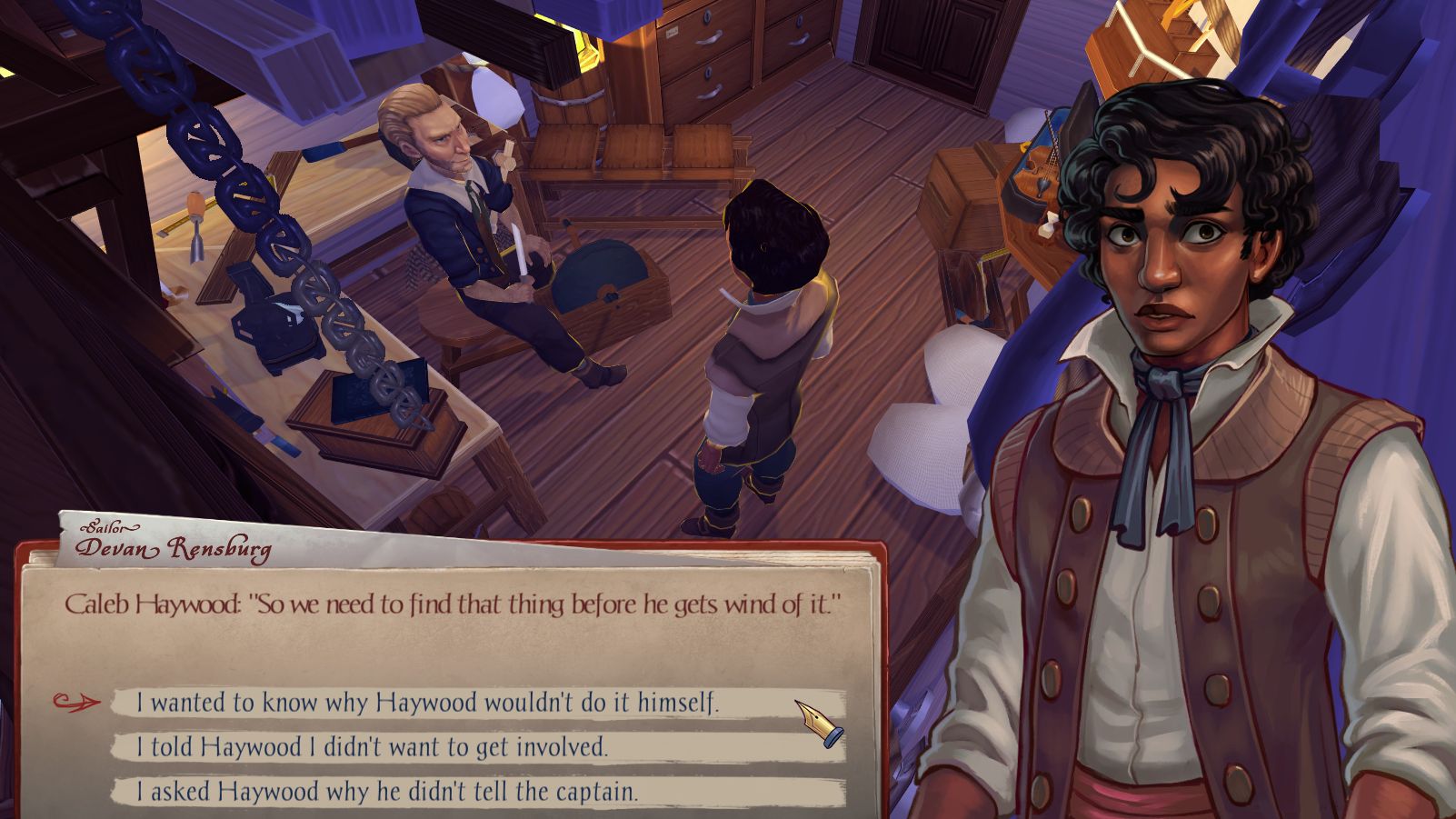
RVDS: Often when you work with people who aren't your close friends or partner, it's hard to admit that you don't really know what you're doing. Sometimes you really want to say 'I'm so stuck. I have no idea what I'm doing. Please look at this.' It's nice that I don't feel a barrier to say that to Bart but I have certain colleagues I would never say that to because then I'm afraid they would think 'Nobody knows what we're doing!'
BH: Especially during the final production parts of Herald I think we had a couple moments where [Roy] said 'I really want this in the game' and I said 'That's not going to happen. It's impossible in the time we have.' And then later on maybe when other people are going home I was like 'Maybe I can make this work.' And I'd actually push myself to get it in there anyway. That happened a couple times. I think it made the game better in the end. I wouldn't do that for a boss or for anyone else. I know Roy really wants this in and I have an idea, I'll go and try it and maybe spend a couple hours working late on it.
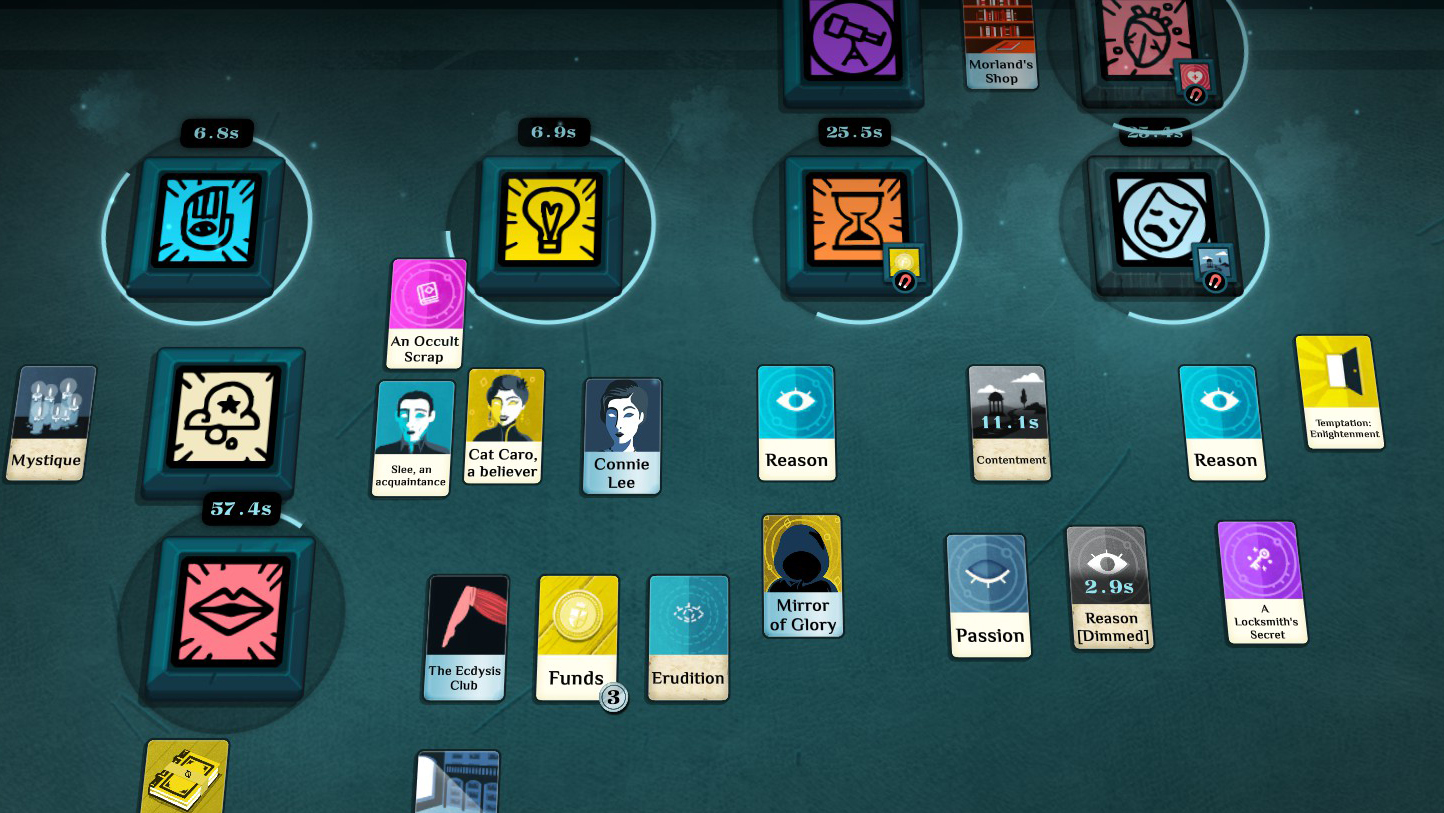
Lottie Bevan and Alexis Kennedy: Cultist Simulator
Lottie Bevan and Alexis Kennedy are a rare sight: a relationship between former boss and subordinate with a significant difference in age—both qualities of their relationship they speak of willingly and with candor. They're eager to dispel the taboos associated with workplace relationships, having successfully navigated one themselves when they worked together on Fallen London and Sunless Sea at Failbetter.
In fact their working relationship was so productive, when Alexis left Failbetter to create Cultist Simulator they found they missed that sense of creative collaboration.
...we may have a tense couple of drinks at a bar
Lottie Bevan
LOTTIE BEVAN: With a totally new project that I had no professional involvement in, there was a bit of a wall between this guy that I am in love with and what he was really excited about right now. He could talk about it all he liked but it wasn't the same as working on the project.
ALEXIS KENNEDY: If you're doing intense creative design work it's a bit like going off to sea with somebody waiting at the shore for you and I don’t like that aspect in a relationship. I don't like feeling separated from Lottie so I was very keen to find ways for us to be on the ship together.
Now they're working together again as Weather Factory studio, recently releasing Cultist Simulator to rave reviews. They protected themselves against potential creative differences by taking unequal shares in the company to avoid the possibility of a deadlock. It works for them, they say, because of their established respect for one another as co-workers.
"If you ever overrule me to the point where I'm like 'I really disagree!' and you say 'No I'm going to use my power here' then we may have a tense couple of drinks at a bar where we discuss it and go back to being boyfriend and girlfriend," Lottie says.
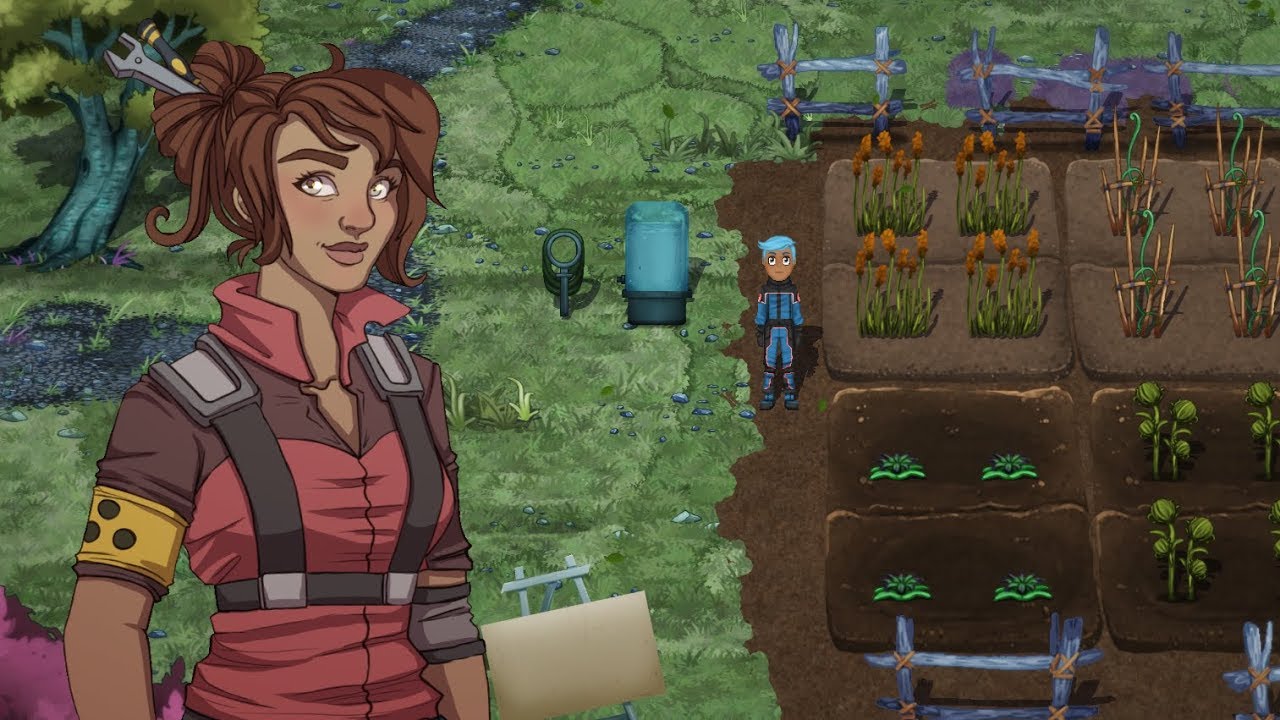
Beth and Andy Korth: Verdant Skies
Andy and Beth Korth didn't intend to have their first child right as they were beginning development on Verdant Skies, a farm-life sim set on an alien world, but that's how the timing worked out. As full-time indie developers, they weren't able to set aside money for childcare. They worked it out like a relay race, tossing the baton back and forth (but never tossing their baby, I'm sure) until Verdant Skies reached the finish line.
It's really important to honor each other's time
Beth Korth
ANDY KORTH: What we try to do is decide 'today is my work day' or 'today is Beth's work day'. So one of us can stay at home and the other can get out of the house and work.
BETH KORTH: We did struggle with that a lot at the beginning when [our son] was born. Waking up in the morning and deciding whose day it is is not good because it's sometimes 11 by the time you decide. We tried to schedule it where I was Tuesdays and Thursdays for a while and at the end when it was obvious that the writing needed extra I switched to Monday/Wednesday/Friday.
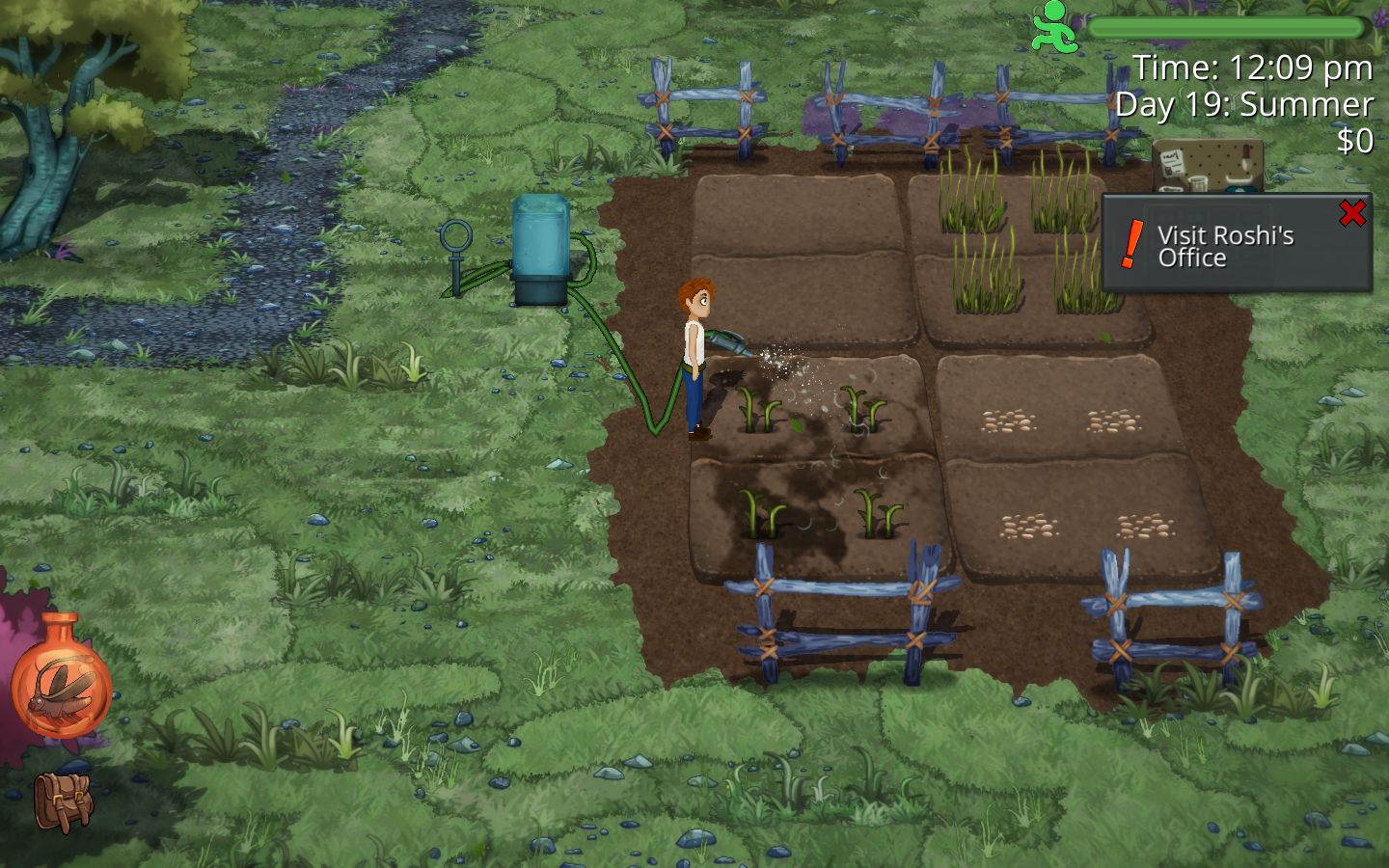
Beth and Andy found that their most significant challenge as a couple and as development partners was acknowledging that both game dev and child-rearing were demanding tasks in separate ways.
"It's really important to honor each other's time," Beth says. "If it's somebody's work day you have to respect that they work but also know that person who stayed home spent a lot of time with your child or was taking care of the house or doing their day job. I think you can lose sight of that. 'I worked all day, why should I have to take the baby?' 'Well, because I sat at home with the baby all day and I need a break.' It's important to remember that the other person's also working and suffering too. Give them time to do something fun or go out or just be alone and sit in a quiet place."
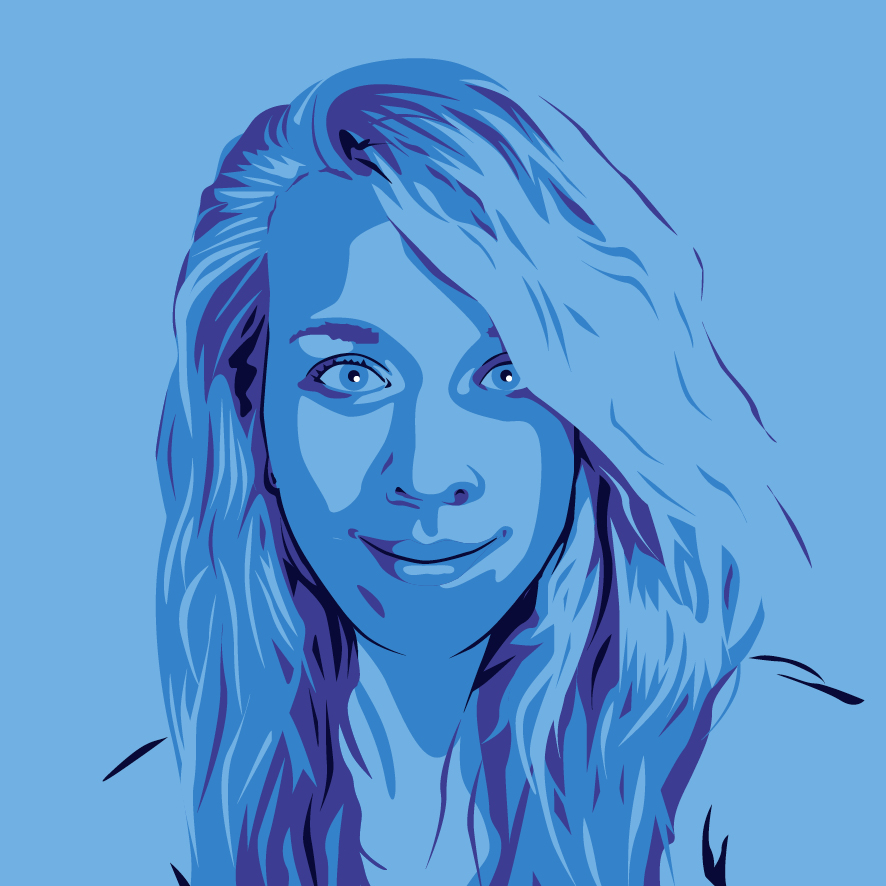
Lauren has been writing for PC Gamer since she went hunting for the cryptid Dark Souls fashion police in 2017. She accepted her role as Associate Editor in 2021, now serving as self-appointed chief cozy games and farmlife sim enjoyer. Her career originally began in game development and she remains fascinated by how games tick in the modding and speedrunning scenes. She likes long fantasy books, longer RPGs, can't stop playing co-op survival crafting games, and has spent a number of hours she refuses to count building houses in The Sims games for over 20 years.

